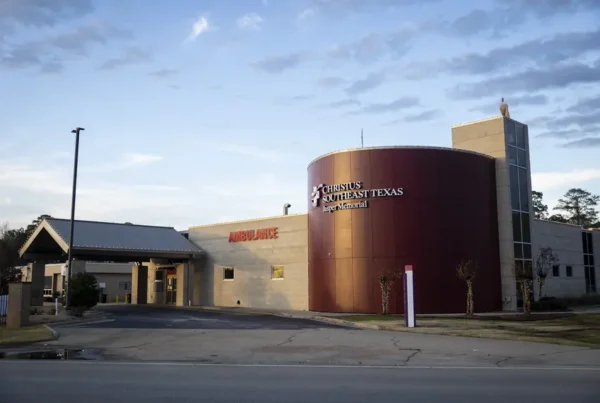President Richard Nixon first declared a war on drugs in 1971, funneling more federal money into agencies intended to combat drug use. Then, in the 1980s, several pieces of legislation created mandatory minimum sentences for drug offenses.
All of these factors lead us to where we are now. But where is that exactly?
Kevin Krause, who covers federal courts for The Dallas Morning News, combed through 10 years of meth sentencing information for North Texas – and what he found paints a stark picture.
As part of a three-part series for the Morning News, Krause said he found meth-related drug offenses in North Texas are often harsher than sentences for violent crimes or other drug crimes, including more deadly drugs like fentanyl.
“There was concern about meth from Congress during the 1990s that it was really dangerous. And even when the laws surrounding crack were reformed in 2010, nothing was done for methamphetamine,” Krause said. “And so it is now the most severely punished drug in the federal system.
“I’ve found cases of nonviolent first-time offenders being given more than 20 years, in some cases life in prison, and there is no parole in the federal system. So they do about 85% of their sentences.”
Meth sentencing also impacts a large number of people because the drug is relatively readily available.
“It’s cheap, and there are a lot of cases being filed,” Krause said. “By far the drug caseload is dominated by methamphetamine cases. And it’s a combination of aggressive prosecutors and judges who follow the sentencing guidelines.”
» GET MORE NEWS FROM AROUND THE STATE: Sign up for Texas Standard’s weekly newsletters
The details of meth sentencing are also outdated in a way that leads to more prison time, Krause said.
“The purity is what’s driving these high sentences,” he said. “In the 1980s, meth was primarily made in the U.S., small little ramshackle operations. Sometimes they would explode, and it wasn’t very pure. And so the feds [made] the policy that if it’s highly pure, that means that it must be coming from the very top, the leadership.
“And so that’s why they decided to punish it so much harder for high purity. But now all the meth is highly pure from Mexico.”
Krause also found that North Texas in particular has some of the harshest sentencing for meth crimes in the country.
“Most judges understand that there’s really no meaning, that this distinction [in purity) is not meaningful anymore. And so they sentence below the federal guideline range,” Krause said. “But here in North Texas, the judges mostly adhere pretty strictly to those guidelines, even though legal scholars and defense attorneys say they’re outdated.”
The second part of Krause’s series explores the cost of these long prison sentences for taxpayers. The third part will come out on Friday.













